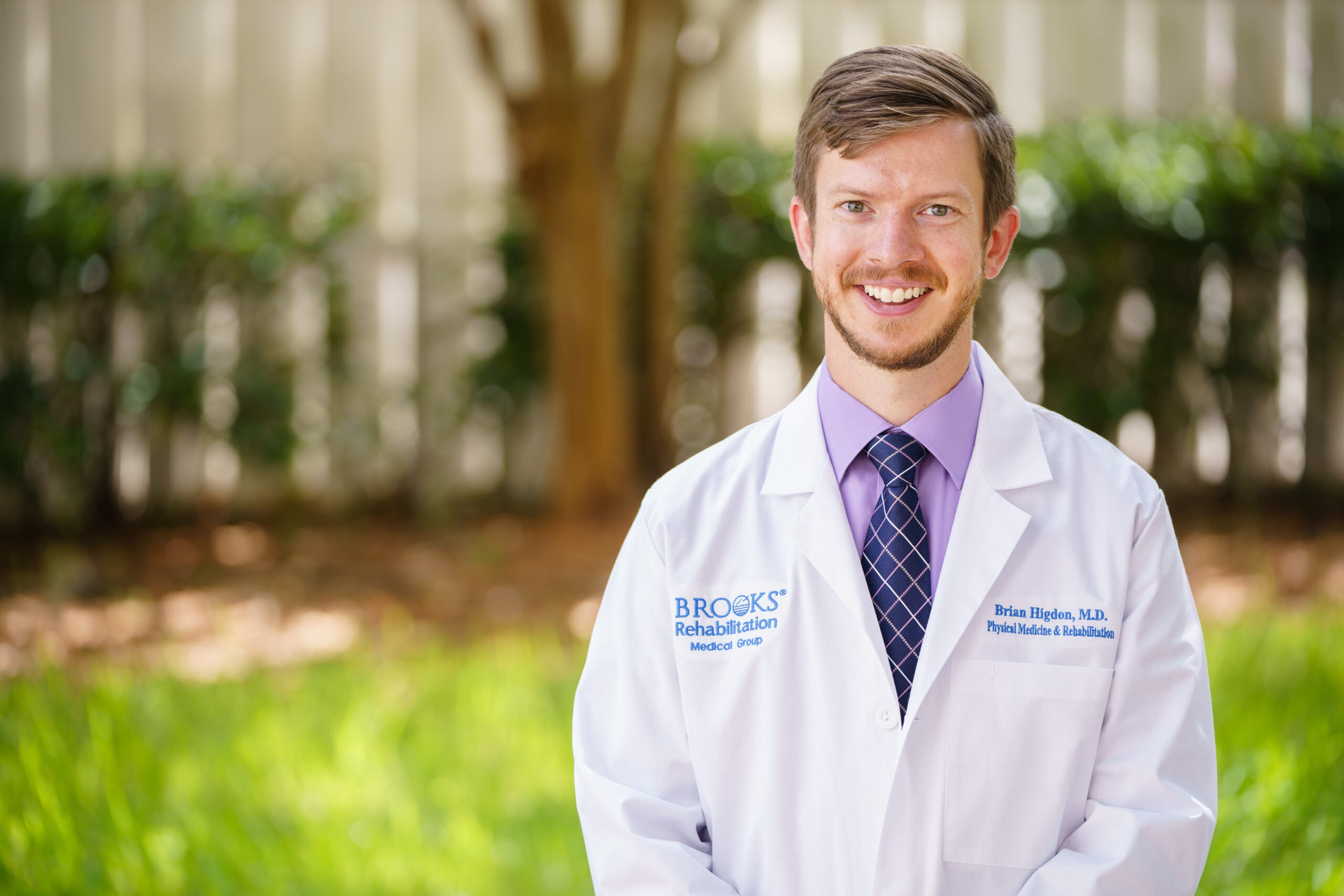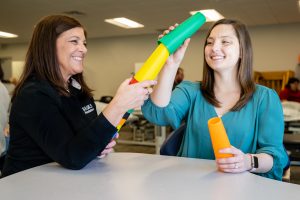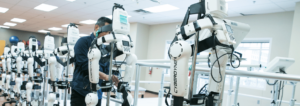Q & A with Brian Higdon, MD

Back to physical health resource hub
Brian Higdon, MD, joined Brooks in August 2021 and serves as the Associate Medical Director for Brooks’ Spinal Cord Injury (SCI) program. His primary focus is the continued care of spinal cord injury outpatients, as well as developing new programs for SCI patients such as spasticity management and neurogenic bladder management. Dr. Higdon is board-certified in Physical Medicine and Rehabilitation (physiatry) and Spinal Cord Injury medicine.
Dr. Higdon earned his bachelor’s degree in liberal studies at Florida College and his Doctor of Medicine at the University of Illinois College of Medicine. He completed his Physical Medicine and Rehabilitation residency at the University of South Florida and a fellowship in Spinal Cord Injury Medicine at the University of Pittsburgh Medical Center.
What got you interested in medicine?
When I was in high school, I really enjoyed my science coursework and also liked helping people through charity work. I was interested in going into the medical field, and I got the opportunity to shadow a rehabilitation doctor in my hometown. I saw the kind of patients who rehab doctors worked with, and the kind of relationships they develop with those patients. So, I decided to go for medicine, and then rehab medicine.
What interests you about SCI medicine specifically?
Spinal cord injuries affect essentially the whole body in one way or another. It affects the way people breathe, it affects their immune system, affects their skin, their bowel and bladder. It’s a whole-body injury, even though it’s “just” the spinal cord. So, the work of spinal cord injury medicine is a very holistic, whole-body approach. I like having the longitudinal relationship with patients, because these injuries often are permanent, and I can help them live their life more fully. Working with patients consistently helps give me a comprehensive view of how their spinal cord injury affects their whole body.
How did you become connected with Brooks?
I had an attending physician who I trained under in Tampa who had worked for Brooks previously. As I researched future employers, the more I read about Brooks the more I was impressed by how many different programs and services they had available for their patients.
Tell us about your outpatient work.
I was brought on board to grow and develop our outpatient program for people with spinal cord injuries. It’s not just for the time period right after they leave the hospital, but I also want to see people years and even decades after their original injuries. I can look at problems like bone health, muscle spasticity and skin issues and see how those can be improved for the patient, because often those are things they will deal with for the rest of their lives.
Are your outpatients all previous Brooks patients?
When I started, a lot of my patients initially had been with Brooks. But I’m seeing more patients from the community. Maybe they got their first care at Brooks, but then didn’t have someone that they could see on a regular basis. With my outpatient clinical availability, I’m able to start seeing them again. Sometimes they did their rehabilitation in another city, or even in another state. When they come to Jacksonville, I start working with them.
Is this type of outpatient treatment unique to Brooks?
There’s really only a few places in the country that focus on their outpatient care and do regular visits. It’s usually, “Come back and see me when you need to be seen.” However, seeing these patients on a regular basis, you can catch problems earlier that may affect them in the future. So, good spinal cord injury longitudinal care includes a lot of preventative medicine to prevent SCI complications.


